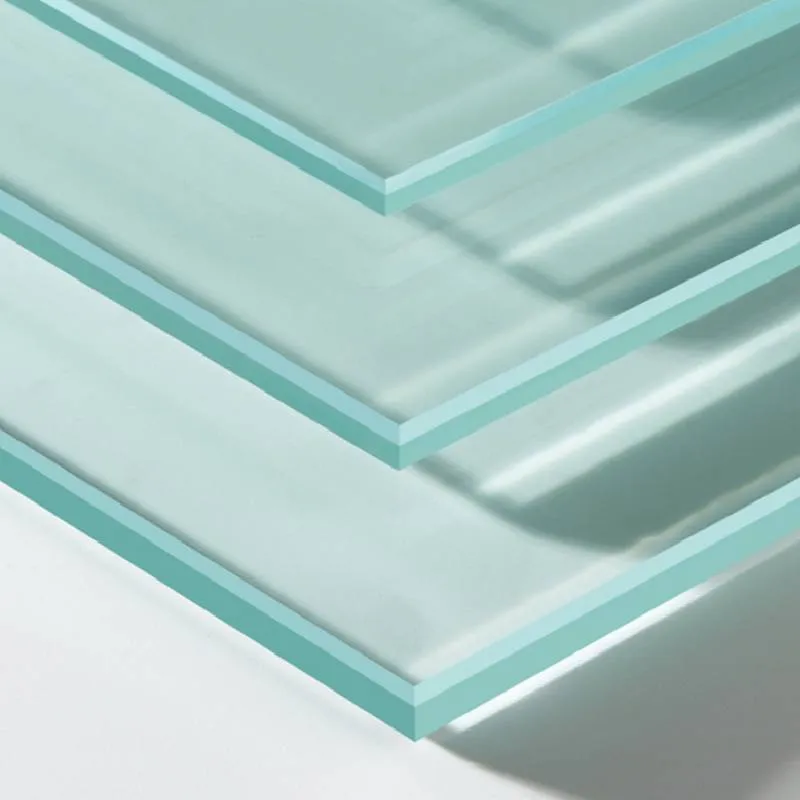Understanding the Essence of Tempered Glass A Deep Dive into Its Applications and Benefits

Tempered glass, also known as toughened glass, is a type of safety glass that undergoes a controlled thermal treatment to enhance its strength compared to normal glass. This process involves heating the glass to over 600 degrees Celsius and then rapidly cooling it. The result is a product that is much more resilient to physical impact and temperature-induced stress, making it ideal for a wide range of applications.
The manufacturing process endows tempered glass with several distinctive properties. Primarily, its increased strength is notable, as it is approximately four to five times stronger than regular glass of the same thickness. This makes it a highly durable option for environments where glass integrity is crucial. An additional advantage is that, upon breaking, tempered glass crumbles into small blunt pieces rather than sharp shards, significantly reducing the risk of injury.

In the architecture and construction sectors, tempered glass has become indispensable. Its application in skyscraper facades, shower doors, glass doors and windows stems from its ability to withstand high wind pressures and thermal gradients. Architects favor its sleek and polished look which provides a modern aesthetic, while also meeting safety requirements.
Another significant application is in the automotive industry. Car manufacturers utilize tempered glass for side and rear windows, as its breakage pattern adds an important layer of safety for passengers in the event of an accident. The automotive sector also values the glass for its capability to resist significant temperature fluctuations - a common occurrence in varying climates.
The electronics industry frequently turns to tempered glass for device screen protectors. As mobile devices become more integral to daily life, protecting their screens from scratches and impacts has become essential. Tempered glass protectors provide a robust barrier without compromising the device’s functionality or clarity.
tempered glass meaning
In the kitchen, tempered glass is often used in appliances like ovens, stoves, and refrigerator shelves. Its ability to withstand high temperatures and resist breakage makes it ideal for these applications, ensuring longevity and safety in environments where thermal stress is a constant factor.
Safety regulations across various industries emphasize the use of tempered glass due to its shatter-resistant properties. In many regions, building codes mandate the use of tempered glass in certain structures to ensure public safety, underscoring its reliability and trustworthiness as a material.
The appeal of tempered glass extends beyond just functionality; aesthetically, it offers a crystal-clear finish that enhances both transparency and translucency. This characteristic makes it a popular choice among designers who wish to capitalize on natural light while ensuring that safety and structural integrity are not compromised.
When considering an environmentally friendly option, tempered glass stands out. It is fully recyclable, making it an excellent choice for environmentally-conscious consumers and businesses. Its durability further adds to its sustainability credentials, as products made from tempered glass often have a longer lifespan, reducing the need for frequent replacements.
Despite its many advantages, there are some limitations to tempered glass that should be noted. Once fabricated, it cannot be cut or altered to fit; any cutting must be done before the tempering process. Additionally, while it is exceptionally strong, it can still be shattered by directed force to its edges, which are more vulnerable than its surface.
In summary, the unique properties of tempered glass—strength, safety, thermal resistance, and aesthetic appeal—make it a highly versatile material used across a multitude of industries. Its suitability for various applications, from architecture to automobile manufacturing and electronics, underscores its invaluable role in contemporary product design and public safety standards. As the world continues to innovate, the demand for tempered glass is likely to increase, driven by its unmatched balance between form and function. The continued emphasis on sustainability also aligns well with tempered glass’s recyclable nature, solidifying its place as a cornerstone material in future-forward design and construction.
 Afrikaans
Afrikaans  Albanian
Albanian  Amharic
Amharic  Arabic
Arabic  Armenian
Armenian  Azerbaijani
Azerbaijani  Basque
Basque  Belarusian
Belarusian  Bengali
Bengali  Bosnian
Bosnian  Bulgarian
Bulgarian  Catalan
Catalan  Cebuano
Cebuano  Corsican
Corsican  Croatian
Croatian  Czech
Czech  Danish
Danish  Dutch
Dutch  English
English  Esperanto
Esperanto  Estonian
Estonian  Finnish
Finnish  French
French  Frisian
Frisian  Galician
Galician  Georgian
Georgian  German
German  Greek
Greek  Gujarati
Gujarati  Haitian Creole
Haitian Creole  hausa
hausa  hawaiian
hawaiian  Hebrew
Hebrew  Hindi
Hindi  Miao
Miao  Hungarian
Hungarian  Icelandic
Icelandic  igbo
igbo  Indonesian
Indonesian  irish
irish  Italian
Italian  Japanese
Japanese  Javanese
Javanese  Kannada
Kannada  kazakh
kazakh  Khmer
Khmer  Rwandese
Rwandese  Korean
Korean  Kurdish
Kurdish  Kyrgyz
Kyrgyz  Lao
Lao  Latin
Latin  Latvian
Latvian  Lithuanian
Lithuanian  Luxembourgish
Luxembourgish  Macedonian
Macedonian  Malgashi
Malgashi  Malay
Malay  Malayalam
Malayalam  Maltese
Maltese  Maori
Maori  Marathi
Marathi  Mongolian
Mongolian  Myanmar
Myanmar  Nepali
Nepali  Norwegian
Norwegian  Norwegian
Norwegian  Occitan
Occitan  Pashto
Pashto  Persian
Persian  Polish
Polish  Portuguese
Portuguese  Punjabi
Punjabi  Romanian
Romanian  Russian
Russian  Samoan
Samoan  Scottish Gaelic
Scottish Gaelic  Serbian
Serbian  Sesotho
Sesotho  Shona
Shona  Sindhi
Sindhi  Sinhala
Sinhala  Slovak
Slovak  Slovenian
Slovenian  Somali
Somali  Spanish
Spanish  Sundanese
Sundanese  Swahili
Swahili  Swedish
Swedish  Tagalog
Tagalog  Tajik
Tajik  Tamil
Tamil  Tatar
Tatar  Telugu
Telugu  Thai
Thai  Turkish
Turkish  Turkmen
Turkmen  Ukrainian
Ukrainian  Urdu
Urdu  Uighur
Uighur  Uzbek
Uzbek  Vietnamese
Vietnamese  Welsh
Welsh  Bantu
Bantu  Yiddish
Yiddish  Yoruba
Yoruba  Zulu
Zulu 


